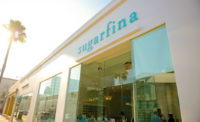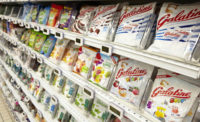The Bristol Luxury Group, a subsidiary of Bristol Capital Advisors, has substantially purchased the assets of specialty candy retailer Sugarfina, Inc. for $15.1 million through a sale approved by the U.S. Bankruptcy Court for the District of Delaware.
The sale, which closed Oct. 31 after an Oct. 22 auction, comes less than two months after Chapter 11 bankruptcy proceedings began. Bristol's majority owners are Paul L. Kessler and Diana Derycz-Kessler. Barlock Capital and Scott LaPorta join the Kesslers as co-investors.
LaPorta will serve as chief executive officer of the newly formed Sugarfina USA LLC operating company.
"We are thrilled to own the Sugarfina brand and the market opportunity to dynamically expand distribution through an omni-channel strategy providing consumers a sweet luxury experience," LaPorta said.
Sugarfina filed for bankruptcy Sept. 6. Leading up to the filing, the company explored multiple possibilities, contacting more than 170 potential partners with the goal of obtaining a complete or partial acquisition, equity investments or long-term debt transactions.
Court records indicate a holding company, Candy Cube Holdings, LLC, had made an initial “stalking horse” bid of $13 million and later followed it with a bid of $14.625 million and a 20 percent common interest in the buyer. Bristol, bidding under Sugarfina Acquisition Corp., originally bid $14 million cash but upped it to $14.625 million cash, a $500,000 credit bid and a 20 percent equity stake in Sugarfina Acquisition Corp.
Founded in 2012 by Rosie O’Neill and Josh Resnick, Sugarfina positioned itself as a “candy store for grownups,” offering confections inspired by adult beverages in Millennial-friendly packaging. Its trademarked Candy Cubes, transparent boxes that show off Champagne Bears, Peach Bellini Gummies and other sweets, are designed for gifting and aesthetically-pleasing social media posts.
Lance Miller, Sugarfina's chief restructuring officer, noted in bankruptcy filings the company's revenues doubled year over year between 2012 and 2017, but they still began to fall in 2016. The company reported $4.8 million in losses that year, followed by $7.3 million in losses in 2017 and $17.9 million in 2018.





